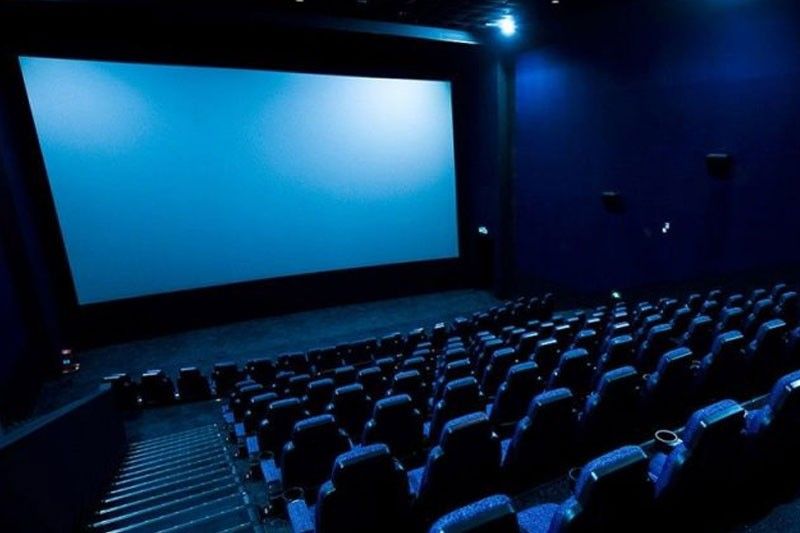Opening of cinemas deferred to March 1

MANILA, Philippines — The reopening of cinemas in Metro Manila and other general community quarantine (GCQ) areas has been deferred to March 1 to give local governments time to craft guidelines for preventing a spike in COVID-19 infections, Malacañang said yesterday.
The government’s pandemic task force earlier allowed the reopening of traditional cinemas to revive the pandemic-battered economy, raising concern among Metro Manila mayors who noted that the virus could spread more easily in enclosed spaces like movie houses.
Cinemas were supposed to resume operations yesterday, but officials agreed to move the reopening to next month to allow more time for consultations.
“The reopening of cinemas, if it pushes through, would be on March 1. There is a need to continue consultations and the local governments need to formulate guidelines before cinemas can reopen. I hope this is clear,” presidential spokesman Harry Roque said at a press briefing.
“We and your mayors are not fighting. We agree that we need to gradually reopen the economy because more people are going hungry than people who are getting sick or dying because of COVID,” he added.
Roque said he spoke with Metropolitan Manila Development Authority (MMDA) general manager Jojo Garcia and Trade Secretary Ramon Lopez last Sunday and they agreed to postpone the reopening of cinemas.
“We are not saying that the reopening of cinemas would automatically take effect now because it would be up to local governments to form their operational guidelines,” he said.
Aside from Metro Manila, other areas under GCQ are Batangas, Abra, Apayao, Benguet, Baguio City, Ifugao, Kalinga, Mountain Province, Tacloban City, Davao City, Davao del Norte, Lanao del Sur and Iligan. The rest of the Philippines is under the most relaxed modified GCQ.
Only about 50 percent of industries are allowed to operate in GCQ areas while 75 percent of businesses can open shops in places classified as MGCQ.
Roque noted that under the resolution issued last week by the IATF, the reopening of cinemas can take effect upon the issuance of guidelines by local governments. “The IATF respects the position of our mayors,” the Palace spokesman said.
“If the LGUs (local government units) issue guidelines, nothing can prevent them from reopening,” he added.
The March 1 reopening will be subject to the guidelines to be set by Metro Manila local governments. For areas outside Metro Manila, they can reopen cinemas even before March 1 if they already have operational guidelines.
Science-based
IATF co-chairman and Cabinet Secretary Karlo Nograles said the risks involved in reopening movie theaters could be managed as long as health and safety protocols are strictly followed.
“In MGCQ areas, it has been a while since we reopened the cinemas at 50 percent operational capacity and so far, we have not seen super spreader events... so that means we now have a basis. That is the reason why IATF decided, but again it’s subject to the finalization of implementing guidelines,” Nograles told CNN Philippines yesterday.
“At the end of the day, the bottom line here is livelihood. I saw somewhere that we’re really talking about 300,000 jobs when it comes to this sector,” he added.
Nograles urged mayors to join the IATF’s technical working group in crafting guidelines, including the allowed seating capacity in movie theaters.
“We can be assured that health protocols will really be considered and in fact prioritized when finalizing guidelines,” the Cabinet official said.
“It’s really balancing. I believe the suspension of the implementation is also correct since there are no guidelines yet. Hopefully, once the safety and health protocols to be done inside cinemas are clear, I think they would be more open,” he added.
Asked to react to criticisms against the reopening of movie theaters, Nograles said the IATF’s decision was based on the science of health, economics and experience.
“It’s been one year already. We can’t afford to just let it just be the same as far as economic activity and jobs are concerned,” Nograles said.
“It’s risk management already. We are no longer in the risk aversion phase, especially with the coming of vaccines. It’s really time to bounce back the economy,” he added.
Mayors’ help needed
MMDA chairman Benhur Abalos said Metro Manila mayors and the Department of Health (DOH) should help craft the guidelines for the reopening of cinemas.
The mayors should also lead in overseeing the implementation of the guidelines and be allowed to make changes, Abalos said at a press conference.
“This happens only when the worst case scenario comes, or when our appeal will not be granted, the rules and regulations we will leave it to the DOH and the Metro Manila LGUs,” he said.
Health Undersecretary Maria Rosario Vergeire said the guidelines would cover ventilation requirements for cinemas.
Earlier, the Metro Manila Council (MMC) protested the announcement of the IATF to allow cinemas to reopen.
MMC chairman and Parañaque City Mayor Edwin Olivarez said the IATF did not consult the mayors regarding its decision.
In an interview over Teleradyo yesterday, he said cinemas are high-risk areas because they are “enclosed, the aircon (air-conditioner) is on for more than 30 minutes and ventilation is questionable.”
For Abalos, a COVID-19 survivor, guidelines should be specific about maintaining distance among movie viewers, contact tracing, temperature check and bringing of food inside the cinema.
“Whatever will be the final decision, we will ask the Metro Manila mayors to prepare guidelines or implementing rules and regulations,” he said.
The MMC would meet with the IATF tomorrow to discuss further the issue of allowing more businesses to reopen.
He said the reopening of cinemas was the “most contentious” issue to Metro Manila mayors.
Setback
In Marikina City, Mayor Marcelino Teodoro issued an executive order suspending the IATF decision on cinemas.
“This is a very problematic proposition. This might bring a surge in our COVID cases, not only in Marikina, but in the Metropolitan Manila area,” Teodoro said in an interview aired over ANC.
“Our fear here is the gains that we have attained in the previous efforts to contain COVID-19 cases can be countermanded or it will be reversed. We might find ourselves in a more difficult situation than before,” he said.
The same position was aired by Caloocan City Mayor Oscar Malapitan. “There is a risk of transmission if an infected person will be in the cinema for two hours,” he said in an interview with dzBB.
Valenzuela Mayor Rex Gatchalian said reopening cinemas in Metro Manila would set back efforts to curb the spread of the virus.
“Let’s say a film takes two hours. That’s a long time. It’s as if we’re violating what we’re teaching our constituents,” Gatchalian said in Filipino in an interview with dwIZ, citing the city government’s advice for residents to avoid enclosed places.
Allowing people to go to arcades would also defeat the purpose of advising them against crowded areas, he added.
“We don’t want children to go to schools, and yet we will allow them in arcades? We might as well allow them in schools then,” Gatchalian said.
Reopening these establishments would convince people that it is safe to go outside for leisure amid a pandemic, he said.
“People will take risks again. Let us not change the default. The vaccines are coming,” Gatchalian said.
Sen. Bong Go, meanwhile, said he supports the position of Metro Manila mayors.
“I agree with our Metro Manila mayors to first study the opening of cinemas in malls. The situation is still dangerous. We do not see the disease COVID-19, especially in the dark cinema,” Go said.
“Our vaccination has not yet begun. If possible, let’s just watch a show in our homes,” he said. – Neil Jayson Servallos, Sheila Crisostomo, Marc Jayson Cayabyab, Ceciille Suerte Felipe, Ghio Ong
Related video:
- Latest
- Trending





























